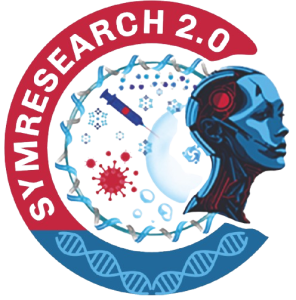Introduction to Quantitative Magnetic Resonance Imaging: Image acquisition and processing techniques
Overview:- This workshop will focus on quantitative Magnetic Resonance Imaging (MRI) methods that are gaining relevance in the clinical diagnostic radiology space. Quantitative MRI are special sequences in MRI that are typically used to multiple physiological parameters of the underlying tissue. These parameters include but are not limited to molecular diffusion in brain tissue, functional brain activations, tissue orientations and connections through tractography, partial and full volume and area calculations, tissue relaxation times, bone quality, brain metabolite concentrations etc. Imaging can be focused on a specific region of the anatomy or the entire brain body. MRI is capable of measuring intrinsic tissue properties and can probe quantitative understanding of the underlying tissue which becomes a personalized and objective evaluation of a disorder. metabolic enzymatic rates that are not accessible by other imaging techniques. The ability to quantify tissue parameters in different manners is important to understand disease mechanisms and for patient management, including diagnosis, treatment planning, and treatment response assessment. In addition, MRI allows us to quantify intrinsic tissue properties in healthy individuals and in healthy tissues of patients, providing important information about the normal function. The workshop will combine lecture sessions provided by experts in the field and hands-on experiment session on a 3T Philips MRI scanner. Please concise
Date : September 18, 2025
Time : 2:00 pm - 6:30 pm (Asia/Calcutta)
By the end of this workshop, participants will:
This workshop will present the state of the art in technical performance and clinical applications of quantitative MRI, which will be relevant to a broad audience of students, scientists, and clinicians in India. In particular, the topics of interest include: the fundamentals of quantitative MRI; biological and clinical relevance; and clinical and pre-clinical applications in healthy conditions and diseases such as cancer, musculoskeletal disorders, neuroimaging and neurological disorders, etc. Practical sessions of quantitative MRI imaging protocols and data analysis will be demonstrated during this workshop as well.
- Describe tissue properties in healthy state and its alterations in disease pathology through MRI.
- Describe the acquisition and processing steps various quantitative MRI sequences, including pulse sequences and processing software.
- Set-up and process flow considerations for data acquisition
- Set-up and image analysis flow considerations using various software.
- Analysis of acquired quantitative MRI data using Philips in-built tools.
- Understand emerging techniques of Artificial Intelligence for quantitative MRI.
- Undergraduate, Masters and PhD students, Medical students, Postdoctoral fellows, Researchers, Scientists and Clinicians
Maximum capacity: 20
Upcoming
Session 1: Basics of quantitative MRI – Part 1 (Image acquisition and reconstruction)
1. MRI Principles
2. Quantification and MRI
3. MRI Data acquisition
4. MRI Data Processing
Session 2: Basics of quantitative MRI – Part 2 (Types of qMRI)
1. Functional MRI (fMRI)
2. MR spectroscopy
3. Diffusion Tensor Imaging
4. Dynamic MRI
5. Arterial Spin Labeling (contrast-free perfusion imaging)
Session 3: Preclinical MRI
1. Experimental techniques
2. Targeted tissues
3. Healthy tissue quantification
Break (15 min)
Session 4: Clinical MRI
1. qMRI for cancer
2. qMRI for neuropsychiatric Diseases
3. qMRI in metabolic and neurodegenerative diseases
4. qMRI of the body (Liver, Cardiac, Muscle)
Session 5: Hands-on data acquisition
1. MRI protocol establishment on 3T Philips scanner
2. Data acquisition on a volunteer for brain
3. Data processing using in-built MRI console tools
4. Data processing demo on FSL software
5. Data analysis and interpretation
- Prof. Bhushan Borotikar, Head, Symbiosis Centre for Medical Image Analysis
- Prof. Amol Gautam, MD Radiology, Head, SUHRC Diagnostic Radiology

